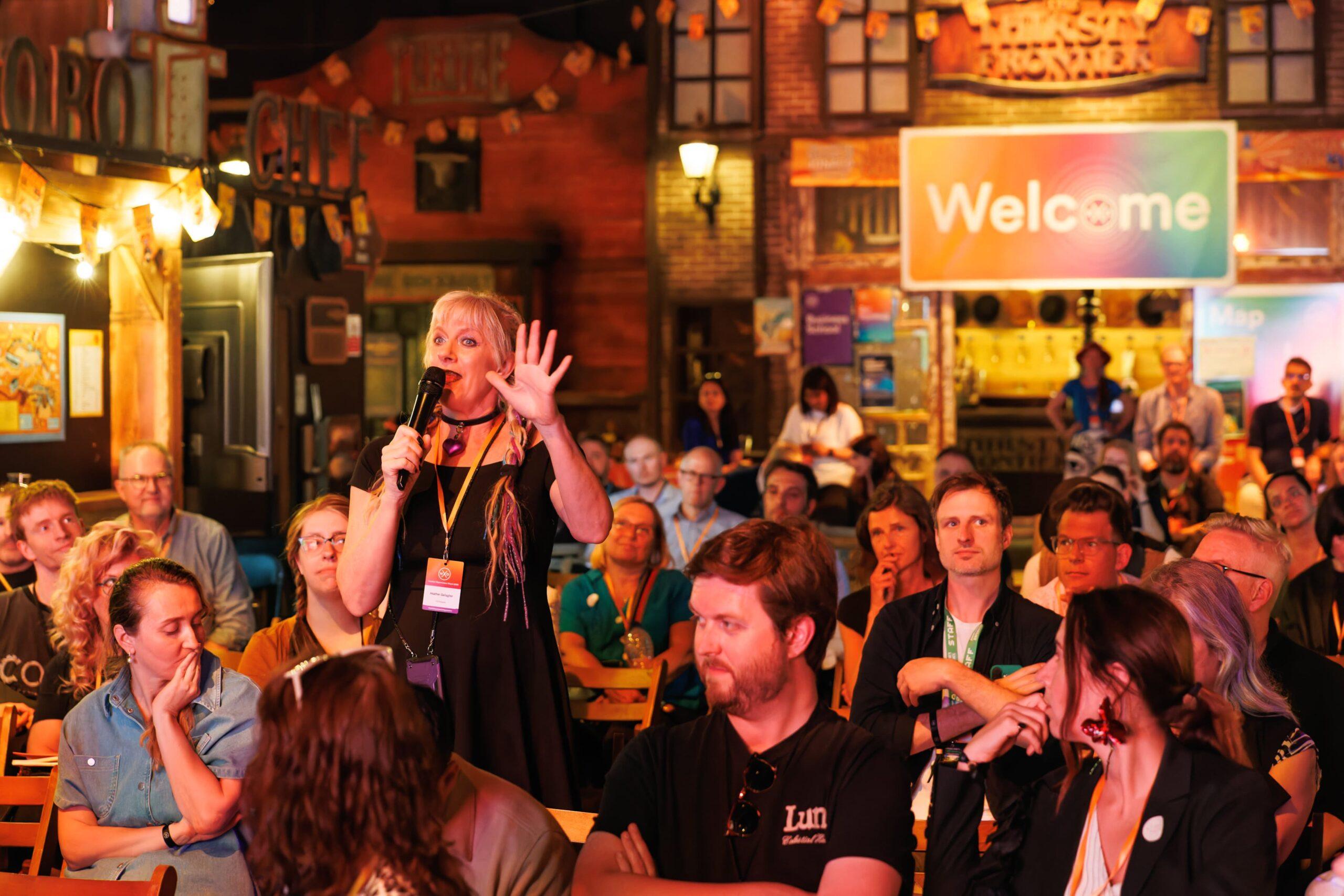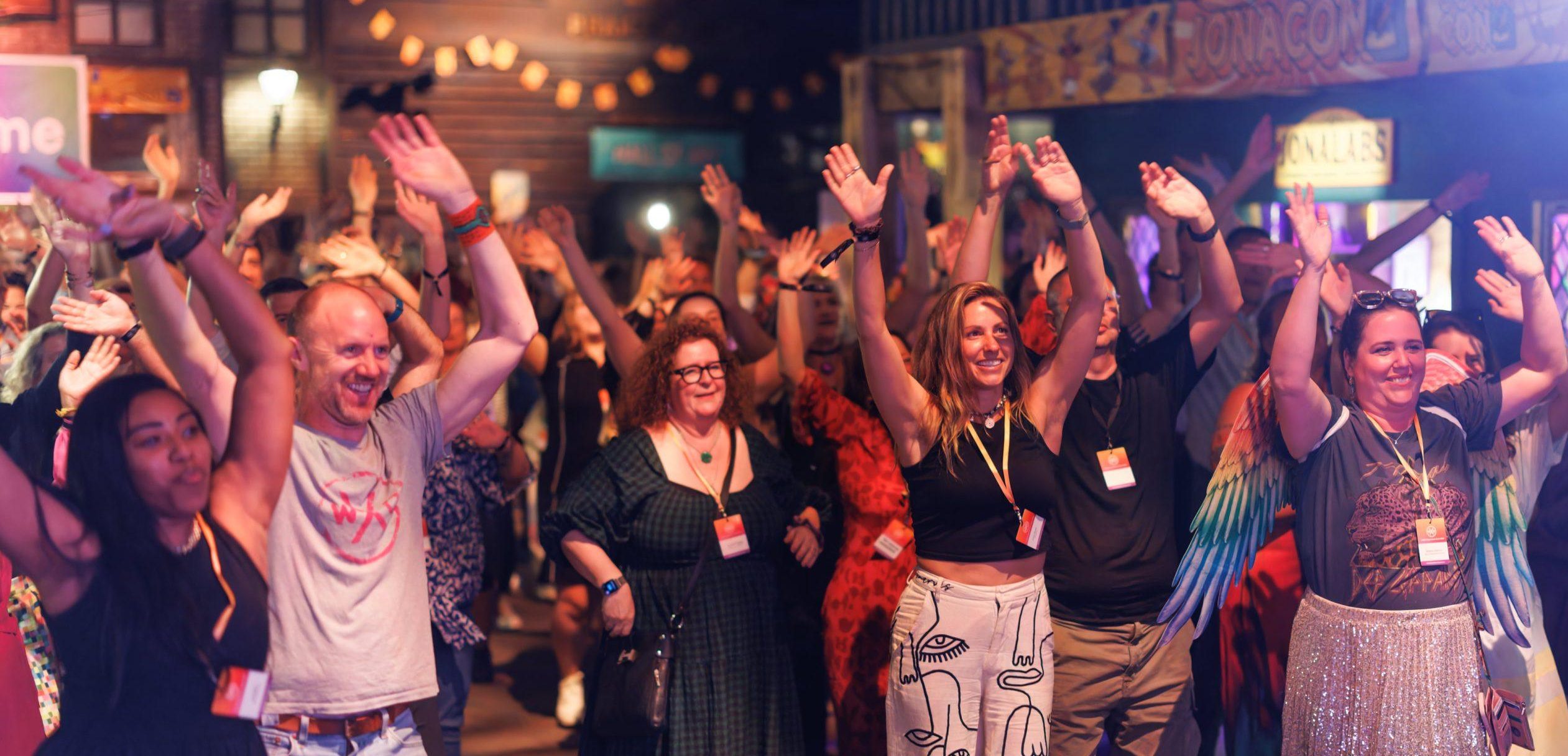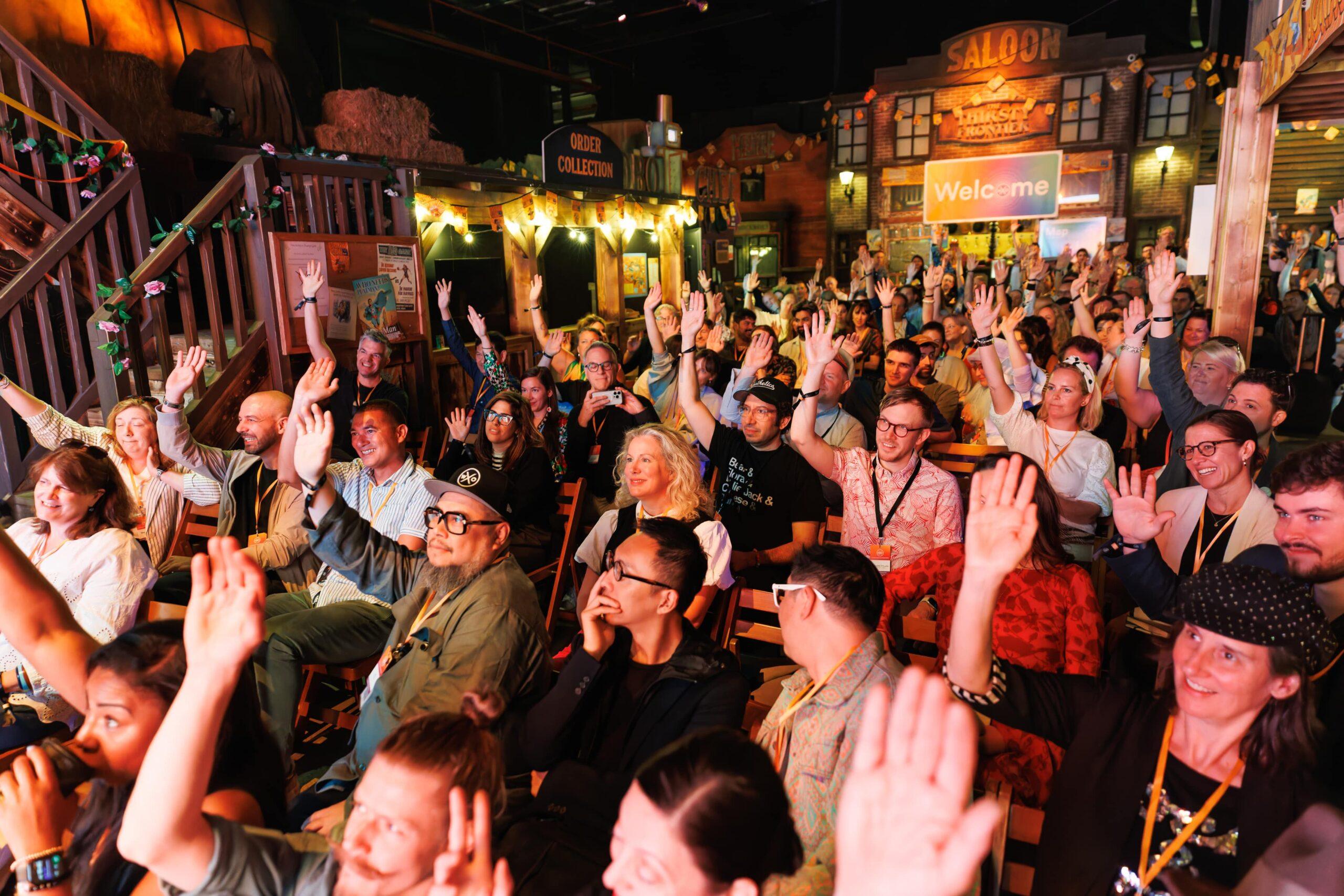Debbie Flynn is a Co-Founder of the WXO, and Managing Partner and Global Travel Practice Leader for communications agency Finn Partners.
On her return from the World Travel and Tourism Council (WTTC) Global Summit 2021 in Cancun, Debbie shares the challenges being faced by the global travel industry after the pandemic – and what the Experience Economy can learn from them.
IN 2020 the global travel industry lost $4.5 trillion and 62 million jobs. And so the sector faces a serious list of challenges:
- rehiring these roles
- convincing people that it is safe to travel
- addressing the tension between the private and public sectors, and between health and tourism ministries
- resolving the fact that different countries are pursuing different policies at a vastly different pace
Friends, there may be some turbulence ahead. But I think we’ve every reason to be optimistic.
The WTTC’s Global Summit is usually all about jobs, innovation and technology, but I’ve never heard so much talk about kindness, empathy, community and sustainability. There was a real sense that no-one has the answers, that we’re all in this together, that competition has been replaced by collaboration. So much of the conversation was around the five Cs:
- collaboration
- community
- clarity
- certainty
- consistency
Everyone’s clear that there’s a huge, pent-up demand for travel. But the industry also recognises the need to apply the hard lessons learned during the pandemic, and remember the promises we made about community and sustainability when travel fully opens up again. Not just because the industry should. But because that’s what the market wants.
Sustainability = climate + community

Sustainability was the biggest single hot topic at the summit. A day of sessions was dedicated entirely to the subject of how travel needs to “build back better”.
“I think many of us expected that sustainability would fall away under the health and economic pressures of managing the virus. In fact, the opposite has been true – sustainability has found a new energy that has never been seen before.”
Darrell Wade, WTTC’s Vice Chair of Sustainability
Diversity and inclusion will also be a big part of this.
As well as being the right thing to do, taking actions against climate change is also good business, as Darrell explained with relation to his own b-corp, Intrepid Travel. The company recently introduced 42 new low-carbon alternatives that will enhance the experience for their travellers while being better for the planet. The move is part of a wider decarbonisation plan that includes removing all flights under 90 minutes from the top 50 trips by the end of 2022, as Intrepid starts to operate in line with a 1.5°C future. Caring about things other than profit has, perhaps counterintuitively, been a very smart business decision.
“Maybe the most surprising element is that our shareholders have achieved an extraordinary return since we commenced our efforts [to be concerned with more than just profit] in 2005. Intrepid’s sales and profitability have continued to grow year on year. The net promoter score our customers give us is much higher than it was back then and our staff engagement score is also significantly higher too.”
Darrell Wade, WTTC’s Vice Chair of Sustainability
Climate change remains a key issue. But the focus is now shifting. While the laggards are now aiming to be carbon neutral, the innovators now want to be carbon negative and “energy positive” – see Norway’s Svart hotel, which promises to be “the World’s first energy-positive off-grid destination”. Or the shift towards “regenerative travel”, the movement to not only reduce your impact on a place, but leave it in a better state than you found it. Organisations including the Center for Responsible Travel and Sustainable Travel International have also formed the “Future of Tourism” coalition to “build a better tomorrow”, with G Adventures and the Adventure Travel Trade Association signing onto its guiding principles.

Sustainability is now broadening to include creating sustainable local communities. The travel industry has woken up to the fact that it’s the real people at the end of the tourism food chain who suffer when it’s disrupted. Sustainability in the new world will start with diversity and community empowerment. Here are three examples from the Americas.
- Colombia, as the country’s former president, Juan Manuel Santos explained, now has a new sustainable tourism law that makes it public policy to promote the community as part of the whole ecosystem. Community is at the heart of the country’s new marketing campaign too, which is aiming to position Colombia as the most welcoming place on Earth.
- Panama, as the Minister of Tourism for Panama, Ivan Esklidsen shared, has a new sustainable tourism master plan that identifies communities that have rich nature and cultural products. Esklidsen believes that Millennials, in particular, will be leading the charge in sustainable travel.
- The islands of Hawaii are preparing to reboot tourism there under the slogan “healthy land, healthy people”.
- Tourism New Zealand is now talking about measuring its success not only in economic terms, but also against the wellbeing of the country as measured by its nature, human health and communities.
These remind me of similar initiatives I’ve seen in African countries where wildlife has come under threat. They’ve disovered that the best way to approach this sort of problem is by empowering the local community. That gives them a sense of ownership, pride and protection over their environment. It also reflects something I’m involved with outside of the summit: an initiative involving several travel leaders to ‘preserve travel treasures’, with an emphasis on community and wildlife.
What does this mean for the Experience Economy?
- Sustainability means community as well as climate.
- Carbon neutral is not enough. If you want to lead you should aim for carbon positive.
- Sustainability isn’t a nice-to-have, ‘CSR box to tick’, add-on anymore. It’s good for the top line, the bottom line and staff retention.
- Co-creating experiences with communities will lead to better outcomes, both in terms of empowering them to protect their nature and culture, and creating better experiences, for now and the future.
Empowered communities = better experiences for all

The world stopping has given us a chance to reconsider how we manage the business of travel, and realise the importance of community empowerment. It’s also given us a chance to think about problems like overtourism. When travel opens up again, will some overtouristed communities even want to allow people back in?
Right now, however much they need tourism, communities need to feel safe. In order to be accepted, travellers have a responsibility on how they behave, whether that means washing their hands, wearing a mask or even choosing to go elsewhere.
This new emphasis on community also opens up new experiences and opportunities for travellers. Brian Chesky, the CEO of Airbnb, argued that people won’t be going to the same cities any more. Instead, they’ll want to go to engage with smaller communities, in the countryside and smaller cities. To prepare for this, Airbnb has partnered with local mayors around the world.
(A little WXO cynicism here: perhaps this is also driven by the challenges Airbnb has faced in major cities.)
In Malta, the tourist board is empowering communities via a quirky promotion. It has given hotels money to give to tourists to spend in the local community.
A different sort of bubble travel

Because we’ve all got more used to our own community bubbles during the pandemic, perhaps we’ll also be more curious about learning about other people’s – whether that means wanting a local tour guide who has their own connections to the area and story to tell, or craving more conversations with local people about how they got through the pandemic.
Preparing for this, Intrepid Travel has launched three new London day tours led by women who have overcome challenging circumstances to give travellers a unique insight into the lives of immigrant communities in the capital, with experiences including “Ethiopian Flavours in Shepherd’s Bush”, “Balkan Tastes and Culture on the South Bank”, and “Moroccan Tea Ceremony and Dessert”.
What does this mean for the Experience Economy?
- People are more aware than ever before of where they’ve never been and where they’d like to go, suggesting an openness to new experiences in all areas of their lives.
- People are also more interested in people than places – so the experiences of tomorrow will be about creating a personal touch and facilitating connections with others both alike and different to our selves.
- This emphasis on community, respect for other people’s ways of life and longing for conversation and connection also points back to the role of co-creation in experiences: people will want to reach out to others and create their own shared experiences rather than having them pre-packaged and passed on.
Is a slow world finally ready for slow travel?

Slow travel has been a buzzword for some time, but in the wake of the pandemic, it’s taking on a new meaning. (See also SLOW Collective, coming, well, not soon, but slowly, from Design Hotels founder Claus Sendlinger.) Travel is likely to be more expensive and complicated than before. Whether or not you care about sustainability, for some time to come, it’s just not going to be as simple to jump on and off planes.
People also won’t want to go through the hassle, so would rather consolidate their travels and have more experiences in one trip – see the rise of travel corridors between countries such as New Zealand and Australia or Israel and Jordan.
Travellers are also more likely to want to immerse themselves deeply in a destination, so in the future yield will be more important than volume. People will be prepared to pay a bit more for a better experience, so travel brands should be aiming for the same profitability levels with fewer people and more meaningful experiences.

Finally, perhaps it’s true that as the pace of everyday life has slowed down, we’re no longer seeking instant gratification. We’re looking for more meaningful interactions than an Instagram snap. Chesky believes that mass travel would give way to meaningful travel, that people will want to slow down and spend more time travelling with the friends and family they’ve missed during the pandemic.
What does this mean for the Experience Economy?
- Brands will be able to charge more for a better experience, as consumers will be more open to this. See Joe Pine’s work on the Money Value of Time for a more in-depth view.
- Experiences should dig deep rather than wide, allowing travellers to fully immerse themselves in a specific place and time.
- Consumers are less bothered about instant gratification than before – so design for long-term transformation rather than short-term participation and look beyond the present moment.
- They’re also seeking out experiences that can be shared with friends or family, so design with these groups in mind, as Vince Kadlubek talked about in his piece on saving retail real estate.
Vaccinations, then vacations

At present, the private sector is having to balance communication around the experience of health protocols with the customer experience of having a holiday. The general feeling at the WTTC is that the public sector needs to step in to lead on vaccination and testing so that the private sector can concentrate on the experience – but that this won’t happen until there is collaboration on a global scale.
The disparity in vaccinations, testing and regulations between countries means that the industry is confused. So destinations need to collaborate and follow through on what they’re saying. People want fewer touchpoints, both digitally and IRL, but until countries agree on policy around, for example, vaccine passports, this will remain complex.
The private sector has so far been leading in this space. See Intrepid Travel’s smaller tour sizes focused on one place, for instance, plus their different types of product in reaction to health and safety protocols. Some countries, such as Iceland, have been ahead of the game in reopening quickly and implementing forward-thinking testing for travellers. However, no-one’s safe until everybody’s safe. The world needs to get vaccinated.
What does this mean for the Experience Economy?
- Collaboration between the public and private sector is needed to remove pain points around service that will in turn enable better experiences. As we explored in our fifth Experimental Campfire, you can’t have a good experience without a baseline of decent service.
- The actual experience of managing vaccinations and communications needs to be unified between countries to be effective. How could we help the public sector to design better frameworks, which will in turn liberate the private sector to create better experiences?
The WXO Take-Out
The pandemic has given us all the opportunity to pause and rethink what kinds of experiences and interactions we want to have across society, and travel is no different.
The move towards more meaningful travel experiences was already underway – see the shift from experiential to transformational travel in recent years – but the pandemic has accelerated this pace of change.
And rather than looking inwards at their personal transformation, travellers now want to look outward at the impact they have on their destination – in the words that echoed around the summit, to “build back better”.
And so, sustainable travel is becoming regenerative travel. Carbon neutral is becoming carbon negative. Tourist boards and travel companies are making real, public commitments to prioritise nature and communities in everything they do.
There’s no doubt that while the “big bounceback” is beginning and there’s a lot of pent-up demand from travellers, but there are also some difficult challenges ahead.
But it’s also clear that the five Cs, led by “collaboration”, aren’t going anywhere – that governments, travellers and tourism industry are all more open than ever to building better experiences that serve individuals, communities, and the planet.
About the author
As well as a Co-Founder of the WXO, Debbie Flynn is the Managing Partner and Global Travel Practice Leader for New York-based Communications agency Finn Partners. Debbie was the founder of The Brighter Group in 1995 and built it up to be one of the leading UK tourism specialist marketing and communications consultancies. She is named by the PR Week Power Book as one of the top 10 travel comms influencers in the UK and advises a number of organisations pro bono including Just A Drop, Tourism Cares and the Global Travel and Tourism Resilience Council.
To get more insights from experts in the experience economy and members of our Founding Circle like Debbie – and to be the first to know about our membership programme, events and more – sign up to the WXO community here.





